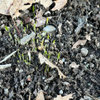Calling all Garden Book readers
heirloomamy
17 years ago
Related Stories

KIDS’ SPACESInspiring Book Nooks Welcome Young Readers
Encourage a lifelong love of reading with inviting and cozy places where kids can burrow into books
Full Story
KITCHEN DESIGN20 Kitchen Must-Haves From Houzz Readers
We asked you to tell us your top kitchen amenities. See what popular kitchen features made the list
Full Story
LIVING ROOMSReaders' Choice: The 10 Most Popular Living Rooms of 2012
Every design style gets a shout-out in the most saved living room photos of the past year — see if any elements speak to your own tastes
Full Story
GARDENING AND LANDSCAPINGReaders' Choice: The 10 Most Popular Outdoor Spaces of 2012
All in the courtyard, please rise — these favorite patios, yards and decks deserve your full attention
Full Story
GARDENING AND LANDSCAPINGShow Us Your Garden Retreat
Where do you go to get away from it all and unwind in your yard?
Full Story
GARDENING AND LANDSCAPINGReaders' Choice: The Top 20 Patios of 2011
Be warned — the most popular patio photos from 2011 may make you long for summer
Full Story
MORE ROOMSReaders' Choice: The 20 Best Bedrooms of 2011
Hit the snooze button and snuggle up with the most popular bedrooms added to Houzz in 2011
Full Story
KITCHEN DESIGNReaders' Choice: The 10 Most Popular Kitchens of 2012
Citing savvy organizational solutions, gorgeous lighting and more, Houzzers saved these kitchen photos in droves
Full Story
BEDROOMSReaders' Choice: The 10 Most Popular Bedrooms of 2012
Snag a peek at the sleeping spaces Houzzers saved the most — and see if any elements are worth tucking into your own bedroom
Full Story
Readers' Choice: The Top 20 Laundry Rooms of 2011
Make doing the wash easier (and even fun) with ideas from the year's most popular laundry room designs
Full Story



Cady
prairiemoon2 z6b MA
Related Discussions
Calling all Texas veggie gardeners for help
Q
Book readers, I have a recommendation
Q
For all you readers..
Q
Readers... I Have Books to Give Away........
Q
heirloomamyOriginal Author
dawiff
sedum37
Cady
martieinct
diggingthedirt
siennact
Cady
heirloomamyOriginal Author
runktrun
dawiff
terryboc
Cady
martieinct
solana
ginny12
Cady
ginny12
martieinct
Kathleen Hanley
heirloomamyOriginal Author
Cady
heirloomamyOriginal Author
ginny12
WendyB 5A/MA
Cady
gfult
heirloomamyOriginal Author
Cady
ginny12
ginny12
gemini40
Cady
Cady
diggingthedirt
ginny12
martieinct
heirloomamyOriginal Author
Cady
terryboc
ginny12
gfult
Cady
sedum37